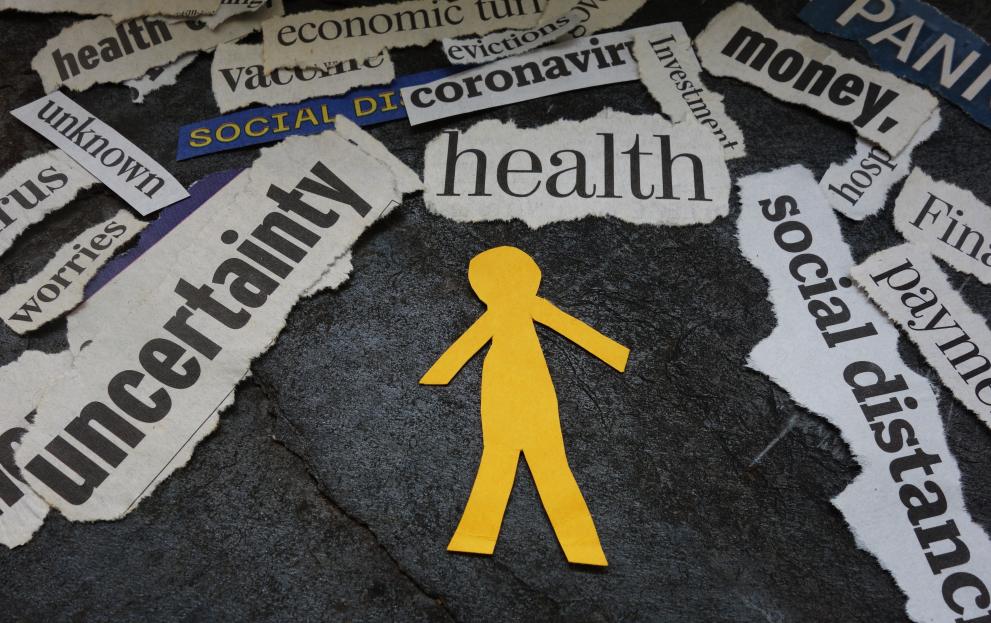
The COVID-19 pandemic has affected individuals, economies and societies in each and every respect.
Beyond the obvious health impact on those who contract the virus, the personal well-being and mental health of the whole population is also affected negatively.
A new JRC study provides evidence of this by mapping the determinants of self-reported life dissatisfaction and feelings of anxiety in 25 advanced and developing countries during the COVID-19 pandemic situation in March and April 2020.
The study was based on the analysis of data from a continuous voluntary web survey, the Living and working in Corona Virus (LWCV) survey, a collaboration between the JRC, the University of Amsterdam and the WageIndicator Foundation. The project continues collecting data and making them available at the IZA data-archive.
Combined with existing knowledge, the study researched how personal characteristics, job-related consequences of COVID-19, the share of COVID-19-infected persons in the population and selected government measures affect individual life dissatisfaction and anxiety. JRC scientists looked at determinants both at individual and at country level.
The study found that healthier people, those with a paid job, those who exercise daily, and those suffering less from loneliness report less dissatisfaction and less anxiety. Women report feelings of anxiety more often than men do.
Higher educated people report less dissatisfaction levels, but the risk of anxiety is not affected by education level. Living with a partner helps to keep satisfaction high but does not affect anxiety.
The presence of children or a pet in the household do not seem to have an effect. Interestingly, despite being more vulnerable in the COVID-19 pandemic, older people have lower levels of anxiety and dissatisfaction.
Unsurprisingly, falls in income and both workload increases and decreases negatively affect life satisfaction and anxiety. The restrictions on mobility and requirements to wear protective gear in public increase dissatisfaction and the state-imposed emergency measures increase feelings of anxiety.
Finally, the study established that although at the beginning of the pandemic an increasing number of cases induced a negative effect on personal wellbeing, this effect levelled off when the number of cases was high.
From a policy perspective, an important take-away from the study is that beyond income reduction and greater economic insecurity, state-imposed lockdown measures such as social distancing and self-isolation increased dissatisfaction and anxiety.
Policy-makers should consider the mental health impact that these measure may have on the population and identify groups struggling most heavily due to COVID-19.
The authors also found that protecting jobs implies the protection of citizens’ well-being, not only throughout the lockdown period but most likely also through the forthcoming and much needed economic, sociological and psychological recovery.
Voluntary web surveys are fast-established and, by continuous sampling, allow rapidly changing situations such as the coronavirus pandemic to be studied.
However, they are not based on representative samples and therefore cannot be extrapolated to the whole population. This study is explorative and can be complemented with future research using national representative surveys.
How has the coronavirus pandemic impacted you? Share your views
We want to hear from you: how has your life been effected by events over the past few months?
By taking part in the Living and Working in Corona Virus Survey, you can help us understand how the coronavirus pandemic is having an impact on people across the EU and worldwide.
The results will provide evidence that can help developing effective strategies to support people and the economy as we emerge from this crisis. Data are made available to the research community and updated daily.
The survey allows for the inclusion of additional modules. At the moment the survey explores the impact of coronavirus with questions on
- Work
- Family
- Loneliness
- Mobile apps
- SMEs
- Regions
Related Content
JRC study: Life Dissatisfaction and Anxiety in COVID-19 pandemic
Details
- Publication date
- 19 June 2020
